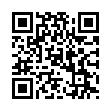|
Positive Scalar Curvature on Spin Pseudomanifolds: the Fundamental Group and Secondary Invariants
Boris Botvinnika, Paolo Piazzab, Jonathan Rosenbergc
a Department of Mathematics, University of Oregon, Eugene OR 97403-1222, USA
b Dipartimento di Matematica “Guido Castelnuovo”, Sapienza Università di Roma, Piazzale Aldo Moro 5, 00185 Roma, Italy
c Department of Mathematics, University of Maryland, College Park, MD 20742-4015, USA
Аннотация:
In this paper we continue the study of positive scalar curvature (psc) metrics on a depth-1 Thom–Mather stratified space $M_\Sigma$ with singular stratum $\beta M$ (a closed manifold of positive codimension) and associated link equal to $L$, a smooth compact manifold. We briefly call such spaces manifolds with $L$-fibered singularities. Under suitable spin assumptions we give necessary index-theoretic conditions for the existence of wedge metrics of positive scalar curvature. Assuming in addition that $L$ is a simply connected homogeneous space of positive scalar curvature, $L=G/H$, with the semisimple compact Lie group $G$ acting transitively on $L$ by isometries, we investigate when these necessary conditions are also sufficient. Our main result is that our conditions are indeed sufficient for large classes of examples, even when $M_\Sigma$ and $\beta M$ are not simply connected. We also investigate the space of such psc metrics and show that it often splits into many cobordism classes.
Ключевые слова:
positive scalar curvature, pseudomanifold, singularity, bordism, transfer, $K$-theory, index, rho-invariant.
Поступила: 26 мая 2020 г.; в окончательном варианте 8 июня 2021 г.; опубликована 24 июня 2021 г.
Образец цитирования:
Boris Botvinnik, Paolo Piazza, Jonathan Rosenberg, “Positive Scalar Curvature on Spin Pseudomanifolds: the Fundamental Group and Secondary Invariants”, SIGMA, 17 (2021), 062, 39 pp.
Образцы ссылок на эту страницу:
https://www.mathnet.ru/rus/sigma1744 https://www.mathnet.ru/rus/sigma/v17/p62
|

| Статистика просмотров: |
| Страница аннотации: | 83 | | PDF полного текста: | 45 | | Список литературы: | 23 |
|




 Обратная связь:
Обратная связь: Пользовательское соглашение
Пользовательское соглашение
 Регистрация посетителей портала
Регистрация посетителей портала Логотипы
Логотипы








 Цитирование в формате
Цитирование в формате 